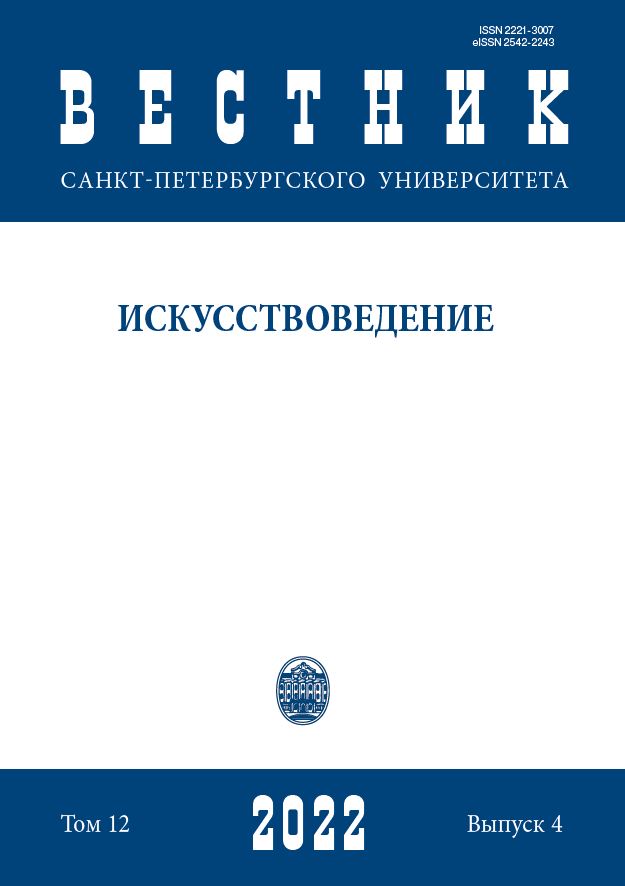Voluntary и Lesson в английских музыкальных источниках XVII–XVIII вв.
DOI:
https://doi.org/10.21638/spbu15.2022.401Аннотация
Статья посвящена тому, каким образом в музыкальной практике Англии XVII–XVIII вв. использовались два весьма распространенных видовых наименования инструментальных сочинений — Voluntary и Lesson. Отталкиваясь от редчайшего случая использования этих наименований как синонимов при публикации около 1810 г. сборника органных пьес Карла Тринкса, факт которой остался практически незамеченным мировым музыкознанием, автор рассматривает их в сравнительном аспекте, отмечая прежде всего существенные различия в их применении английскими композиторами со времен Ренессанса до конца XVIII в., а также обращая внимание на отражение этой практики в общей и музыкальной лексикографии того времени. При этом он подвергает аргументированной критике ряд представлений, уже утвердившихся в западном музыкознании. К примеру, отрицает трактовку как самостоятельной клавирной пьесы Р. Фарранта небольшого фрагмента из «Книги Муллинера», озаглавленного Voluntarye, выражает сомнения в существовании 12-частного Voluntary И. К. Пепуша (опубликован в 1988 г.) как единого музыкального произведения. Но главное — не является сторонником распространения понятия Voluntary на все полифонические органные сочинения английских мастеров XVII–XVIII вв. (в том числе на композиции для органа из «Мелотезии» М. Локка, многие фуги Т. Роузингрейва и т. д.), подчеркивая при этом фактор избирательности композиторов того времени в использовании самого термина Voluntary. Автор также обращает внимание на то, что термин Lesson применялся более разнообразно, нежели это трактует современное музыкознание, распространяясь не только на сольную (преимущественно клавирную) музыку, но и на сочинения для мелодических инструментов в сопровождении basso continuo и даже ансамбли, а также на инструктивные упражнения и несложные композиции для начинающих.
Ключевые слова:
Voluntary, Lesson, английская музыка, клавишные инструменты, фуга, соната, терминология, лексикография
Скачивания
Библиографические ссылки
Загрузки
Опубликован
Как цитировать
Выпуск
Раздел
Лицензия
Статьи журнала «Вестник Санкт-Петербургского университета. Искусствоведение» находятся в открытом доступе и распространяются в соответствии с условиями Лицензионного Договора с Санкт-Петербургским государственным университетом, который бесплатно предоставляет авторам неограниченное распространение и самостоятельное архивирование.






